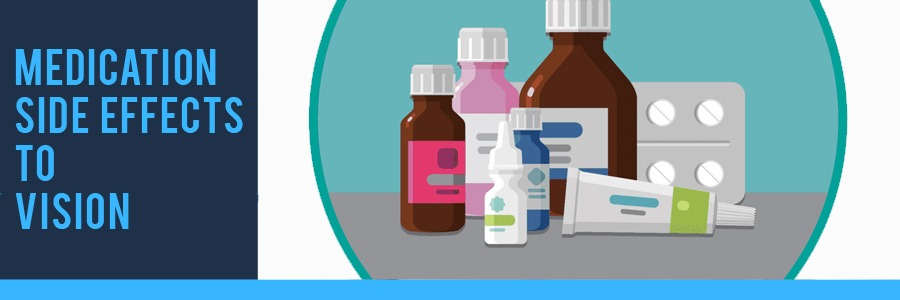
Personalized Eyewear Consultation by Appointment Only (215) 443-7706
- Home
- About
- Products
- Services
- Lens Lab
- Vision Care
- Newsletter
- Contact Us
Menu- Home
- About
- » Doug Wohl
- » Awards
- » Reviews
- Products
- » Bifocals
- » Computer Glasses
- » » Computer Vision Syndrome - Digital Eye Strain
- » Contact Lenses
- » » Are Contacts Right For You
- » » Guidelines for Contacts Wear and Care
- » » Instructions for Soft Contacts
- » Eyeglass Frames
- » » Frame Guide - Frame Shape and Face Shape
- » » Frame Materials
- » » Eyewear Maintenance
- » » Makeup Tips When Wearing Glasses
- » » Wiley X Eyewear Frames
- » Children Eyeglasses
- » » Eyewear for Babies and Young Children 0-5 Years Old
- » » Kids Corner
- » » 10 Tips for Buying Glasses for Children
- » Occupational Eyeglasses
- » Prescription Lenses
- » » Lens Coatings and Tints
- » » » Anti Reflective Coating
- » » Replacement Lens Options
- » Progressives
- » Readers
- » Safety Glasses
- » » Eye Injuries that Could be Prevented with Safety Glasses
- » » Prescription Safety Eye Glass Feature Guide
- » Single Vision Eyeglasses
- » Sports Eyewear
- » Sunglasses
- » » UV Eye Safety
- Services
- » Eye and Vision Exam
- » » Eye and Vision Problems
- » » Glaucoma Test
- » » Vision Refraction
- » Contact Lens Exam and Fitting
- » Eyeglass Repair
- Lens Lab
- Vision Care
- » Cornea
- » Detached Retina
- » Diabetic Retinopathy
- » Dry Eyes
- » Eye and Vision Conditions
- » Fun Eye Facts
- » Eye Function and Parts Explained
- » FAQ
- » Macular Degeneration
- » Makeup Causing Eye Damage
- » Medication Side Effects to Vision
- » Optic Nerve Damage
- » Optical Terms and Definitions
- » Red Eye
- » Retina Damage
- Newsletter
- » Blue Light Blocker Glasses
- » Buying Glasses Online
- » Covid-19 Safety Practices
- Contact Us
- Home Vision Care Medication Side Effects to Vision
There are many interactions of drugs with your eyes and vision. We do not intend to give you all possible ocular side effects from different medications. Instead, we will share common ocular side effects, or those which deserve special mention. Just because a drug is not listed does not mean that it does not have any possible ocular side effects.
- Antidepressants prescribed for depression, such as Amitriptyline (tri-cyclic antidepressants), and Cymbalta increase the risk of acute angle closure glaucoma, but do not increase the risk for "open angle" glaucoma.
- Any drug that dilates your pupils may increase the risk of angle closure glaucoma (narrow angle glaucoma).
- But even hydrocortisones can contribute to glaucoma. These include oral Hydrocortisone (Cortef, Hydrocortone) and topical Hydrocortisone (Ala-Cort, Hi-Cor, Hytone, Neaclear, Penecort, Synacort).
- Docetaxel (Taxotere) prescribed for breast, lung, prostate, stomach, neck and head cancers.
- Fenfluramine, prescribed for weight loss
- Gastric antispasmodics, prescribed to stop muscle spasms
- Mirtazapine, prescribed for depression
- NSAIDs, non-steroidal anti-inflammatory drugs, such as aspirin. See the list of NSAIDS above.
- Paclitaxel (Taxol), prescribed for cancer treatment
- Simvastatin , prescribed for high cholesterol - Don't eat grapefruit if you are taking this drug, as there are potentially dangerous side effects.
- Steroids, cortisone prescriptions such as Prednisone (Prelone, Deltasone) are the most damaging drugs to the eyes of all prescription drugs. If you must take any of these drugs, be sure to supplement your diet with antioxidants such as vitamins E, C, and beta-carotene. This includes drugs for skin conditions: Betamethasone (Alphatrex, Diprolene, Diprosone), Desoximetasone (Topicort), Dexamethasone (Mymethasone, Decadron, Hexadrol), Fluocinonide (Lidex-E, Lidex), Fluocinolone (Synalar), and Triamcinolone (Aristorcort, Kenalog, Triacet, Triderm). It also includes drugs for treating asthma, allergic reactions and inflammation such as Methylprednisolone (Medrol). If you must take Prednisone, perhaps ask about a natural cortisone such as Hydrocortisone.
- Stimulants such as ephedrine which is prescribed for low blood pressure, giving rise to dilation of the pupils, may increase risk of angle closure glaucoma.
Prescription medications and some over-the-counter remedies can have serious visual side effects. They can have a variety of effects on your eyes, ranging from minor, temporary issues such as blurred vision to permanent damage. Learn which drugs cause the most problems — and what to watch for if you have risk factors.
Some of you have eyes configured to have a narrow angle that puts you at risk for an acute onset of glaucoma. Sulfa drugs like Topamax, or certain antihistamines or incontinence medications like Detrol or Ditropan, can trigger an acute attack of glaucoma in someone with a narrow angle.
Elevated eye pressure or intraocular pressure can cause damage to the optic nerve and is one of the risk factors for glaucoma and other vision conditions. This is a serious condition because not only is death from cardiovascular problems more likely in glaucoma patients, but drugs used to treat glaucoma may damage the cardiovascular system. This is why you need to protect your eye sight with glaucoma tests as part of your routine eye exams.
If you have diabetes, you are especially prone to developing blurred eyesight from cortisones. With high blood sugar levels, there is temporary swelling within the lens of the eye, resulting in blurred vision. With poor control of blood sugar, structural damage can occur within the eye that can cause severe vision loss.
Your vision is too important to assume side effects will just go away. If you’re having clear-cut eye problems related to medication, please call us.
About Wohl Optics Vision Care
Proper eyewear prescription AND fit are vital for your best vision. Fit is something that you will never get right with an online optical business. Veteran owned and operated - best in Bucks County Optical eye care shop.
How could your vision be better? What situations do you feel give you trouble when wearing eyeglasses? That is why we are here.
Exclusive Discounts
Military, Veterans, First Responders, Police, Firefighters, Ambulance all receive exclusive discounts (not combined with insurance or other discounts).
We accept most major Vision Insurance Plans.
(215) 443-7706 Phone
(215) 443-8795 FaxWohl Optics
550 Street Rd.
Warminster, PA 18974Veteran Helping Veterans - Local Bucks County, PA Independent Optician

Copyright © 2016-2022
All Rights ReservedCredit Cards Accepted

Private Consultations for your Family: Flexible hours at your convenience by appointment ONLY
Wohl Optics Regular Schedule:
Monday 10:00AM - 5:00PM Tuesday 10:00AM - 4:00PM Wednesday 10:30AM - 6:00PM Thursday 10:30AM - 7:30PM Friday 10:00AM - 6:00PM Saturday 10:00AM - 1:00PM We are offering personal appointments to everyone for the selection of eyeglasses and eyeglass adjustments. We will make every effort to accommodate your schedule. Let us know if you would like to meet at Wohl Optics outside of the above regular scheduled hours.
Service Areas
Bucks County, PA; Montgomery County, PA; Chester County, PA; Philadelphia, PA; Warminster, PA; Ivyland, PA; Warrington, PA;Furlong, PA; Warrington, PA; New Hope, PA; Southampton, PA; Bensalem, PA; Northampton, PA; Hatboro, PA; Willow Grove, PA; Huntingdon Valley, PA; Horsham, PA; Lansdale, PA; Montgomeryville, PA; Newtown, PA; Langhorne, PA; Lahaska, PA; Buckingham, PA; Yardley, PA; Chalfont, PA; Richboro, PA; Doylestown, PA; Glenside, PA; Ambler, PA; Fort Washington, PA; Churchville, PA; Norristown, PA; Washington Crossing, PA; Philadelphia, PA.
Wohl Optics 550 Street Rd. Warminster, PA 18974 (215) 443-7706 Privacy Policy HIPAA Sitemap
